The junior exploration world revolves around new discoveries. It’s what we live for. Everyone gets excited when someone finds something significant; shareholders, management and the bankers all make money and new mines get built. Hats off to the individuals and teams that have made new economic discoveries. Huzzah.

“Thanks Dad, can’t wait.“
I had the tingly pleasure of drilling a really hot hole once, but it was for a major company and I was a simple salaried geologist. The drill hole results didn’t make the news, but it was a belter. We cut 50m at 11g/t gold and couldn’t talk about it, which was shitty: it was completely immaterial to the big mining house.
If I’d drilled it for a junior company, the stock would’ve rocketed, and the next retail investment conference would be buzzing with people heading to our corporate booth to hear the inside scoop and tell us how amazing we were. I’d be writing this blog from my deck overlooking a warm, blue bay, plucking fresh mangoes from the tree and sipping fine, vintage rum. Alas, I’m in cold, rainy Vancouver, drinking lukewarm tea, squishing big, dopy ants waking up from the winter that think it’s fun to crawl up the inside of my back door. Such are the cards we’re dealt.
Goddam Social Media
Recently, with the advent of instant social media -the breakneck world of twitter and bulletin boards where everything and everyone is dissected by impatient investors- I’ve noticed a disturbing trend; a tendency to throw the moniker “genius” at any geologist running a junior that cuts a decent hole into a new discovery. This vexes me.
In fact, it drives me totally nuts. Most of these people are simply doing their jobs, exploring known belts for known commodities, and applying tried and trusted science concepts to define targets. As I said, I drilled a good hole in my murky past, probably one of the top holes industry-wide that year. But it doesn’t make me a genius. I was simply the business end of a major team effort. Truth be told, I’m 1% suave, amusing, geo-blogger and 99% barely-concealed serendipitous idiot. Luckily for me, most people never see beyond the 1% to discover my inner dotard.

My Mum’s Steak & Kidney Pudding
Anyway, enough showing off: back to the point. These people are NOT geniuses so can we please stop calling them that? They might be good managers, or good team players, or they may be above-averagely smart geologists, but geniuses? Really, come on, let’s maintain a bit of perspective here folks. If that’s all it takes to be classified in the top 1% intellectually, my mum would be a genius simply on the basis of her exceptional steak and kidney pudding; definitely in the global top 1% of puddings. (Sorry mum, didn’t mean to suggest you’re NOT a genius, obvs. Please don’t unsubscribe.)
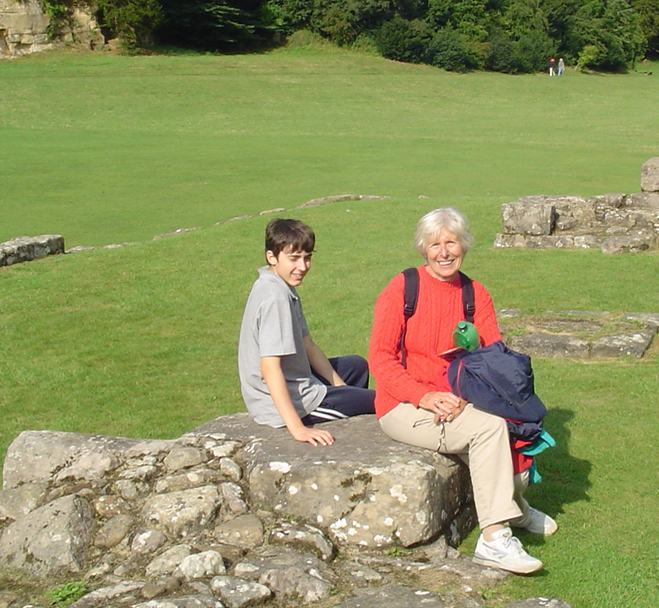
But the fact is, the moment most of these genius-type folk step up to speak at a conference, you’ll realise they’re not so different to the average geologist muttering to themselves in a dark corner of the pub over a pint of Happy Ending IPA. If they’re such smart people, how come they haven’t learned to speak yet? Sure, they might have read more papers than me, or have an extra 10 years field experience, but they still give exceptionally dull talks full of boring geological baffle gab.
Another name that pisses me off, often uttered in hushed, reverential tones at conferences or in corporate newsletter puff pieces, is some variation on the theme of “the rock whisperer / wrangler / doctor” suggesting the geologist in question has a supernatural ability to er..er…what exactly? Magic up prospective rocks? Calm down angry outcrops? Herd valuable chunks of ore across the mountainside until they come together in a big sweaty pile, all goldy and fattened up for mining? Spare me.
Remember, A Genius Is..
“..a person who displays exceptional intellectual ability, creative productivity, universality in genres, or originality, typically to a degree that is associated with the achievement of new discoveries or advances in a domain of knowledge. Geniuses may be polymaths who excel across many diverse subjects or may show high achievements in only a single kind of activity.”
In other words, creative, highly intelligent people, well-versed in multiple disciplines, making significant new advances in one or more fields of human intellectual endeavour. Which is definitely NOT most of us in the exploration world, including your mate Nigel who once discovered half a million ounces of gold within a hammer’s throw of an old head frame.
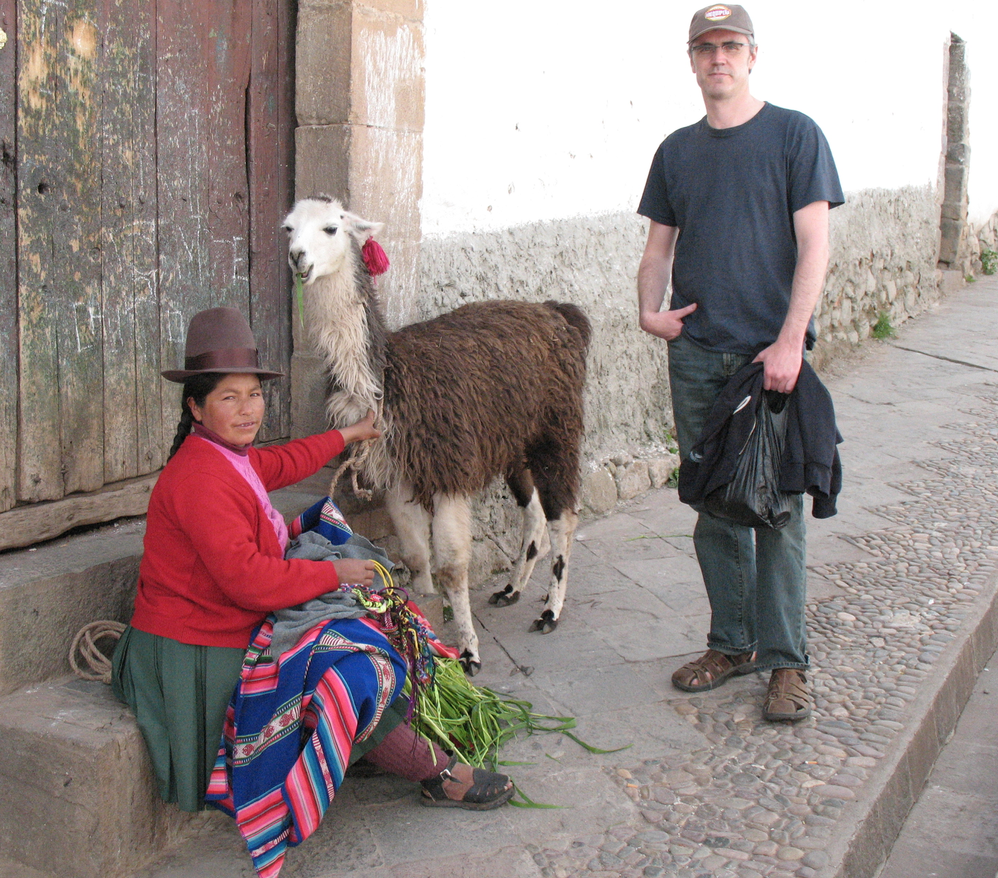
They’re Bloody Clever
True genius in earth science has significantly advanced our understanding of fields such as stratigraphy (Hutton and his unconformity), the formation of igneous rocks (Bowen’s reaction series), and continental drift – the precursor to modern plate tectonics (Alfred Wegener) and so on.
Take a look at the book Halliburton sponsored a few years back, written by Mike Simmons, a British professor of geology. He describes a cross section (sorry) of history’s greatest geologists and their discoveries. It’s a handy little volume that covers the key discoveries made by roughly 3 dozen of the pioneers of earth science, pretty much all verging on genius. Take a read – it’s interesting stuff.
Of course, the business of discovery is blessed with some brilliant minds. While I was getting myself worked up into an indignant soapy lather about the misuse of the “G” word, I kept thinking about who the real brainiacs are/were in our humble field of economic geology. For example, I’ve had the pleasure of going into the field a few times with a well-known consultant who’s penned an important chunk of the science of intrusion-related deposits. He’s as close as I’ve come to meeting one, I think. But I’m guessing even he would tell you that the best geologists -including him- are usually the ones who’ve 1) seen the most rocks, 2) recognised what those rocks mean, and 3) going forward, actually remember what they’ve seen in the past so they can draw on it when they see something new.
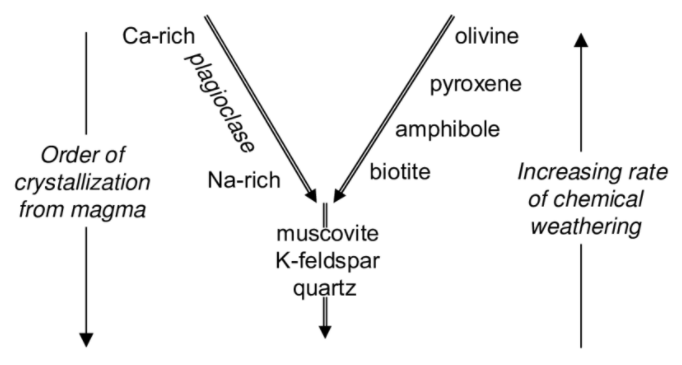
It Wasn’t Always This Way.
The search for mineral deposits used to be the purview of the self-trained prospectors; observers who travelled through far off foreign lands, testing interesting rocks for useful metals with basic chemistry sets and a large helping of common sense.
Today, it falls almost exclusively to university graduates. The training and education needed to be a fully-functional economic geologist takes longer and longer, and it’s fairly standard for explorationists to have at least a Master’s degree. There are still highly successful self-ejumakated prospectors out there, a species most often spotted in the wilds of the US and Canada hanging out of helicopters. But it’s worth noting that most have bet all of their financial resources on their chosen vocation and will sink or swim by their discoveries, so they are hugely motivated. Braver people than me, dull salaried creature that I am.
With the relentless decrease in discovery rates -a major headache for a business that eats rock and poops out metal- and as buried mineral deposits became harder and harder to find, geologists began to apply serious science in their search for metal, simply because we had to. The old days of bumping into a Tier 1 deposit next door to the Red Lion, or under old Roman workings marked by a big stone sign saying, “Here There Be Copper” in Latin, are long gone.
So just who were the brilliant pioneers in economic geology? Here are a couple of suggestions to chew over.
George Farmer
I think one of the earliest geniuses in our field was Georgius Agricola, the German polymath and scholar of the renaissance period. He’s best known in mining circles for his incredible descriptive work, De re metallica libri XII, a seminal 12 volume work that was the first real description of the geology and practical exploitation of mineral deposits.
Published in 1556, before I was born, it’s an amazing book; one that I had the good fortune to be able to hold and leaf through about 10-15 years ago during a visit to a consultancy in the US. An engineering colleague owned a first edition that was rebound(!) in the 1700s. He kept it wrapped in newspaper, shoved in a leather bag in an old desk; a bit of a comedown for such an iconic book, but it meant I got an hour to myself to leaf through its faded pages, outside the stuffiness and dust of a formal library. And I took a picture, albeit a bit blurry.
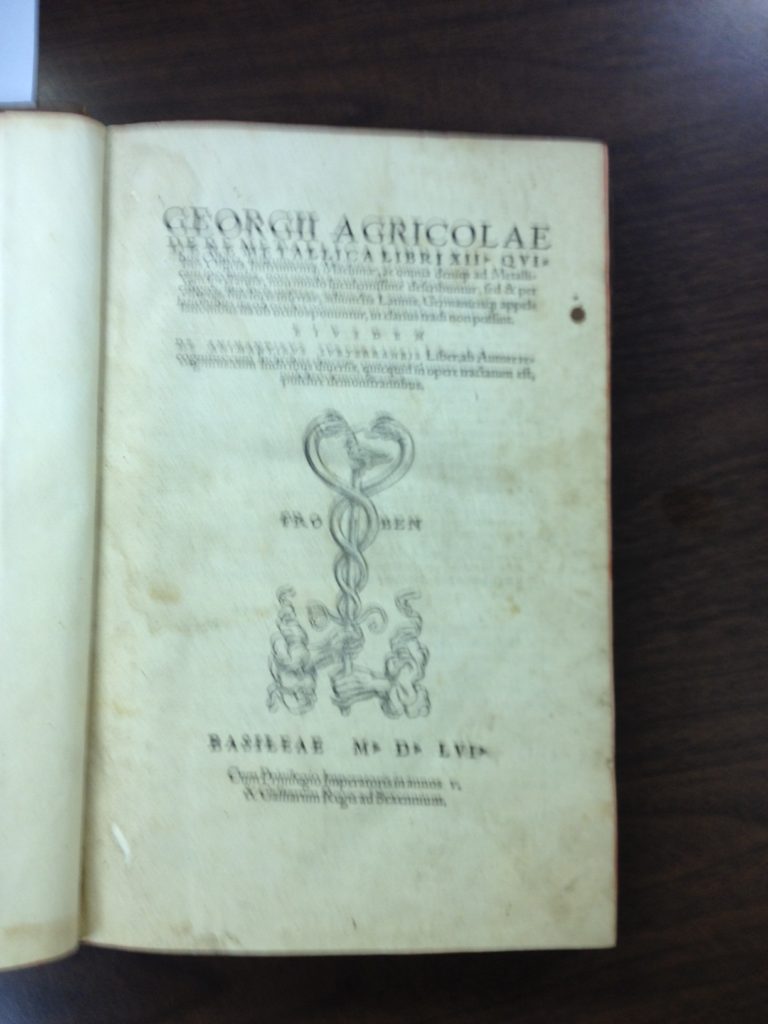
The book was written in Latin, so it was all Greek to me, but I did spend a lot of time looking at the pictures (as befits my IQ). De re metallica isn’t quite on the same level as the Origin of Species or Newton’s Principia, but it’s the closest thing we have to a bible in economic geology, and it’s my blog, so fuck it, I think he was a genius.
And? Who Else?
Well, funny you should ask. Three hundred and some years later in 1871, the great Hans Merensky was born into a family of missionaries in the Transvaal. He was destined to become the father of southern African economic geology; one of the true discovery geniuses in our discipline. He was a bit good at finding mineable rocks, and I’d be willing to bet that he discovered more valuable minerals than any other geologist has, or ever will again.
Merensky’s first foray into African geology was when he was 36. He was educated and trained in Germany, and cut his professional teeth as a coal geologist (someone has to I guess). He stepped off the boat in 1904, back onto southern African soil, clutching a newly minted PhD. Merensky had a keen interest in minerals and a passion for the great outdoors; a good combination for prospecting southern Africa as long as you can avoid the myriad animals that might want to eat, gore, poison or trample you.
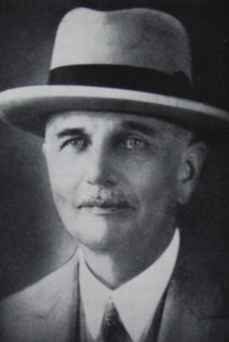
He Found Lots of Valuable Stuff
Dr Merensky’s list of discovery credits is truly extraordinary. The alluvial diamonds off the Namibian coast, the Bushveld tin deposits, the Bushveld platinum deposits, the world’s largest chromium deposit, and the Phalaborwa carbonatite for good measure, which is still mined for copper, phosphate (apatite), precious metals and mica. Granted, he may simply have been lucky – right place at the right time, and all that- but you have to admit, someone this serially successful might just have made his own luck.
In part, he piggy-backed off earlier discoveries. Diamonds had been found on the Namibian coast before he got there, and platinum was known from the Transvaal -hard rock and alluvial- although the occurrences were thought to be inconsequential. But our good doctor had the geological sense and the persistence needed to map out the first evidence of the incredible world class deposits both would become.
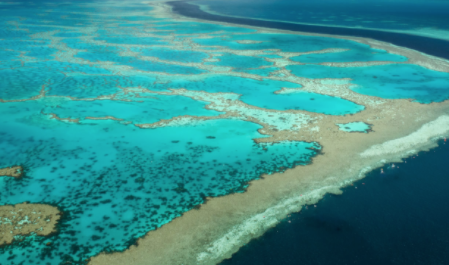
It’s also worth pointing out that he must’ve been a good promoter too, comfortable leading investors through a 1920s PowerPoint deck. Because not content with simply discovering the minerals, he also founded and financed companies to exploit them, eventually ending up a wealthy man. He became rich enough to establish a substantial educational foundation, interestingly named The Hans Merensky Trust, which supports initiatives in agriculture, horticulture and forestry, but not economic geology. The ingrate.
They All End In “ium”
Most economic geologists know his name because it was given to the enormous platinum deposits of South Africa’s Bushveld complex. The Merensky Reef, 50cm or so of cumulate rocks enriched with a tasty basket of platinum group elements (PGEs) most of which end in the 3 letters “ium”, is the largest deposit of PGEs ever found and is still being mined today. In 1999, on the 75th anniversary of Merensky’s discovery, one study estimated that around 55-million ounces of platinum had been mined from the deposits he found.
Merensky discovered his namesake reef in 1924 while prospecting for the source of placer platinum nuggets found on a farm in the eastern Bushveld. Platinum had been reported from a chromitite rock unit in the region as early as 1906. But our hero looked closely at the detrital platinum and realised it was too coarse to have come from that rock unit. He put 2 and 2 together and began the search up stream for a different source, eventually finding what we now know as his Reef. Within 4 years he and a colleague had traced it for at least 160 kilometers.
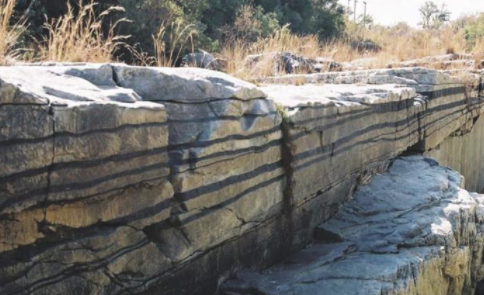
Diamonds In The Surf
The diamonds of the southwest African coast were first discovered in 1908 by a black labourer, who brought a large diamond he’d found to his boss. After some study, it was concluded that they must have originated inland from where they were found.
Merensky’s crucial contribution, first mooted in 1909, was to recognise their association with a fossil oyster bed, suggesting that they had actually been washed in by the sea. Taking it one step further, he speculated that the mouth of the Orange River had migrated along the coast over time carrying diamonds with it, and that stones would be found all along the coast of Namaqualand.

In 1926, his thesis turned out to be correct, more diamond fields were found, and Dr. M was rewarded with a £1.25-million payment, the equivalent of close to £20-million in today’s money. He spent part of the cash on champagne and women, and wasted the rest founding the successful Phosphate Development Corporation (FOSKOR) to mine his discoveriy at Phalaborwa. Foskor is still mining phosphates there today.
So, We All Agree Then, He Was A Genius.
That’s my sixpence worth on the subject of economic geology genius. There are many successful promoters out there today, people who’ve made more money than Merensky ever did, but personally, I wouldn’t call any of them geniuses. And there are many good geologists who’ve drilled good holes, but they’re not geniuses either. In fact, it’s an incredibly rare quality that we don’t see very often, so let’s stop using it on anyone and everyone who drills a decent hole.
I’ve mentioned only 2 candidates in this piece- there are undoubtedly more you can think of who I could’ve discussed but I’m not writing a book, and I’ve always been fascinated with Han Merensky’s track record of discovery. What a time and place to be alive as a geologist; geologists today can only dream about prospecting such virgin country.
Don’t Forget
If, like me, you recognise the true hidden genius of this piece, and it makes you feel like you’ve stumbled upon an outcrop of the biggest group of really high grade words about economic geology ever found -lucky you- you can subscribe for more using the enormous tier 1 subscription box near the top of the page. And please tell your friends. And your parents, and your friends’ parents too. From time to time I’ll e-mail everyone more stories and articles guaranteed to help you sleep at night.


Being a geologist myself, living in Australia, I really enjoyed your blogs. Thanks. Keep it up!
Thanks Phil. Feedback always appreciated!